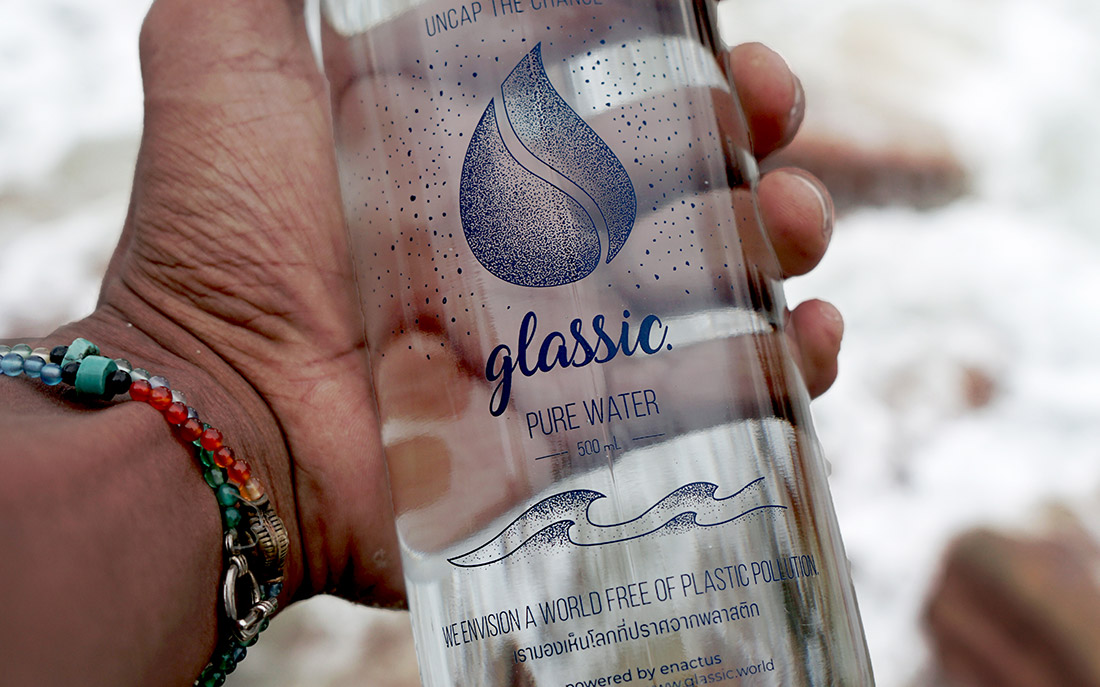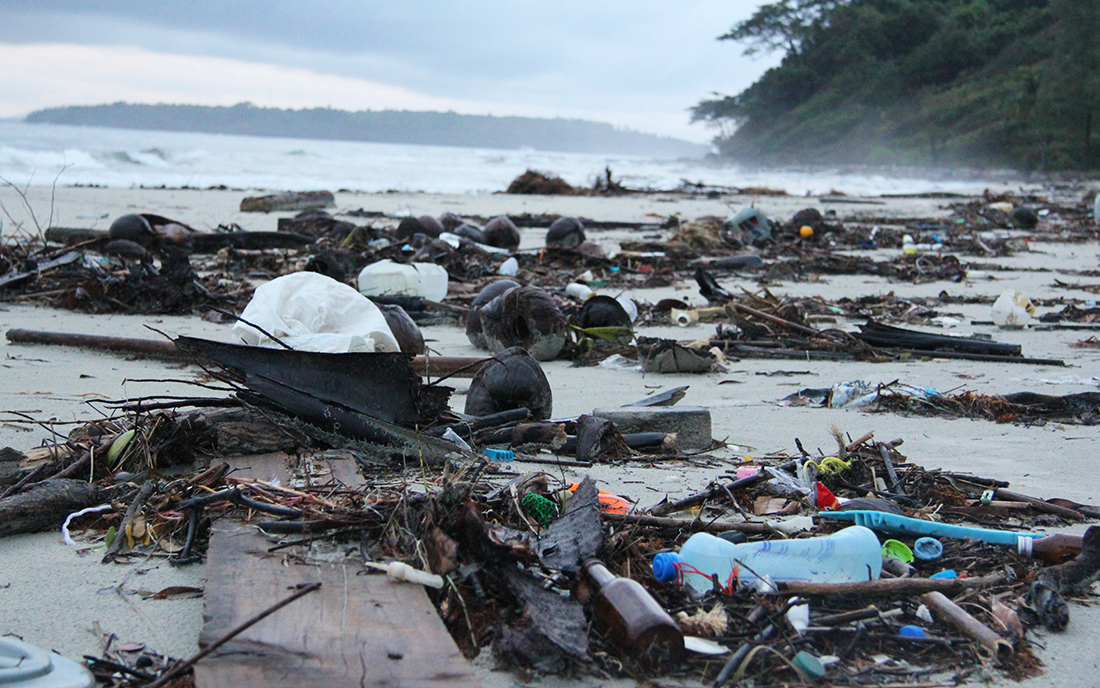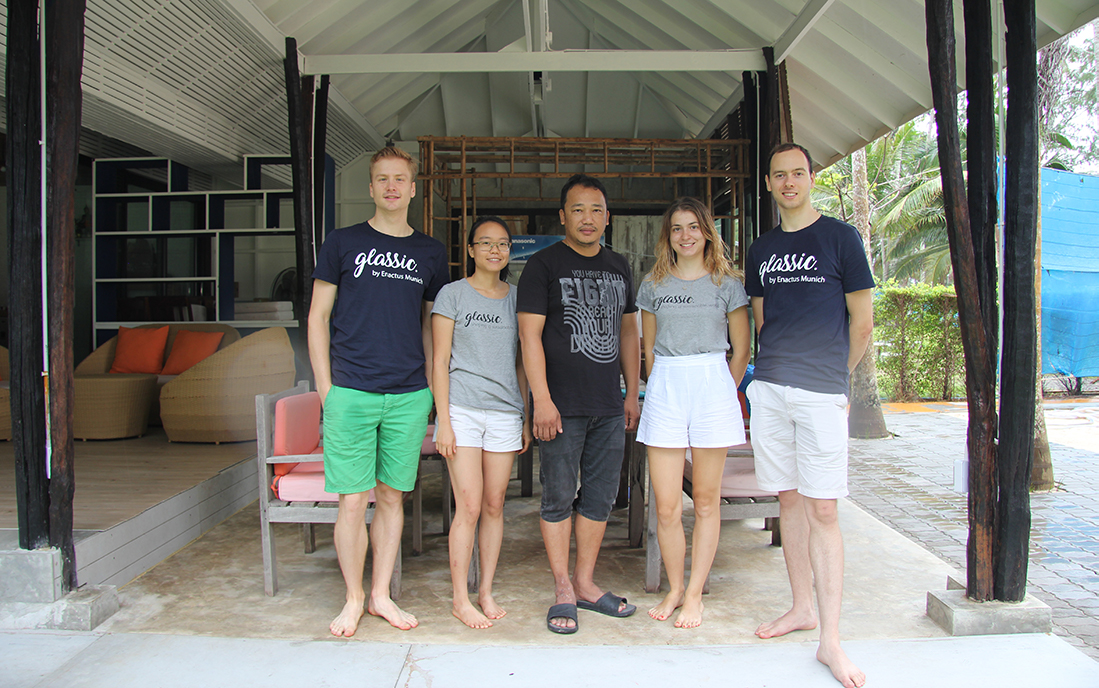No more plastic bottles in the oceans: Establishing returnable bottle schemes in Asia

The Munich-based social start-up Glassic is establishing a returnable deposit bottle system on the island of Ko Kut in Thailand. The stylish glass bottles are the lever to reduce the amount of plastic bottles which end up in the oceans. The Enactus project won the Gexsi Impact Challenge Award in November.
Plastic waste in the oceans is now omnipresent. A colourful variety of initiatives have emerged that organise ocean clean-ups, campaign for a ban on disposable bags or manufacture products that are made from plastic bottles fished from the sea or from old fishing nets.
Here we present an initiative started by students of the TU Munich that takes a new approach and tackles the problem at its root: Glassic.
Southeast Asia as a hotspot for marine plastic pollution
Especially in Asia, the consumption of disposable plastic bottles is enormous. 7 of the 10 countries worldwide with the largest amount of plastic waste are in Asia. About 7 billion plastic bottles are produced every year. Very few are recycled. In fact, less than 10% of the world’s plastic waste is recycled. The largest part ends up in landfills, is used for energy or ends up in the environment or in the oceans.

The startup Glassic has founded a social business that establishes the sale of water in reusable deposit bottles in Southeast Asia. It starts on the island of Ko Kut in the Gulf of Thailand.
Export of a good idea
The start-up is exporting an idea that we in Europe have had for many decades or even centuries – in Sweden there has been a bottle deposit on 33cm glass bottles since 1885. In Germany, returnable glass bottles are a success, especially for beer and mineral water. The market share for returnable glass bottles is over 80% for beer and almost 40% for mineral water.
The founders of Glassic recognised that the conditions for reusable systems are excellent, especially on the offshore islands in Thailand. There are sufficient sources of quality drinking water that enable local production. The disposable bottles that Glassic competes with are mostly imported from central distributors in Bangkok and have correspondingly high transport costs. Also, the disposable bottle costs many times what its contents are worth. Economically, this is suboptimal.
In addition, especially on the tourist islands there is a clientele that can make the system work as “early adopters”. This is because many of the tourists are not only aware of the plastic waste problem, but also of glass deposits and are happy to make a contribution to environmental protection by making a small purchase. Accordingly, the bottles are particularly attractive for restaurants and hotels.
«We empower locals and tourists by giving them both the awareness and the product alternative to make a choice to make a difference. Together for a natural and sustainable world, we directly address four SDG targets: 14, 13, 12, 6.» Patrick Bombik, Founder of Glassic
A start-up competing with multinational corporations, founded by students
The founders of Glassic are proud that the product can keep up with competing products in terms of price. This is the prerequisite for the idea to spread and for glass bottles and deposit systems to be used by large parts of the population. Due to its location in the very east of the Gulf of Thailand, Ko Kut is heavily frequented by tourists from the Asian region – an advantage when it comes to establishing the idea of a bottle deposit in this cultural area.

Glassic was developed by students at the Technical University of Munich and is part of the worldwide student network for social entrepreneurship – Enactus. Through the network, competitions are launched time and again, some specifically to develop solutions for the fight against marine pollution: 1 Race – 4 Oceans.
Every 3 seconds, 1 ton of plastic waste ends up in the oceans. Every year, 146 million tons of plastic packaging are produced. But only 20% is recycled. And Southeast Asia contributes to 70% of global plastic pollution.
The start-up is ready to take off. The partners on Ko Kut are on board, the first 18,000 returnable bottles have already been produced – thanks to a sponsorship – and the filtration and bottling plant is under construction. The restrictions imposed by COVID-19 and the lack of tourists are challenges that are currently delaying the start.
The next step is to set up Glassic as a non-profit company in Germany, which will manage the roll-out of the idea in Southeast Asia as a social franchise model. Through the non-profit structure, Glassic will be able to organise ocean clean-ups or start environmental education projects. Because one thing is certain: Glassic was founded to fight the pollution of the oceans at its roots. The entrepreneurial means are a means to an end.

Fighting plastic in the oceans with Gexsi
In November, Glassic won the Impact Challenge Award sponsored by Gexsi, which was awarded as part of the Enactus Germany Startup Accelerator.
With Glassic, Gexsi is already supporting the second project that builds a bridge between better product design and plastic waste prevention. We at Gexsi support the “Replace Plastic” app of the German Charity “Küste gegen Plastik”. The app enable each of us to suggest changes in product design when we stumble across products that contain unnecessary plastic packaging while shopping. Simply scan the QR code and use the app to inform the manufacturer that we, as customers, think the product is good, but not its packaging.
Questions, criticism, suggestions? Write to us!
Dr. Andreas Renner, Co-Founder Gexsi: andreas@good-search.org
Become part of a community, which positively changes the world!
Set a sign and make Gexsi your search engine!
![]() Gexsi – the search engine for a better world
Gexsi – the search engine for a better world
Your search generates money for projects which make the world a better place.

